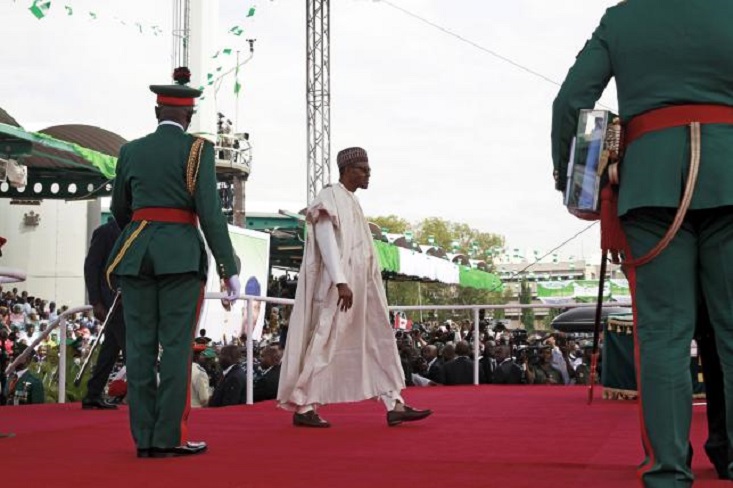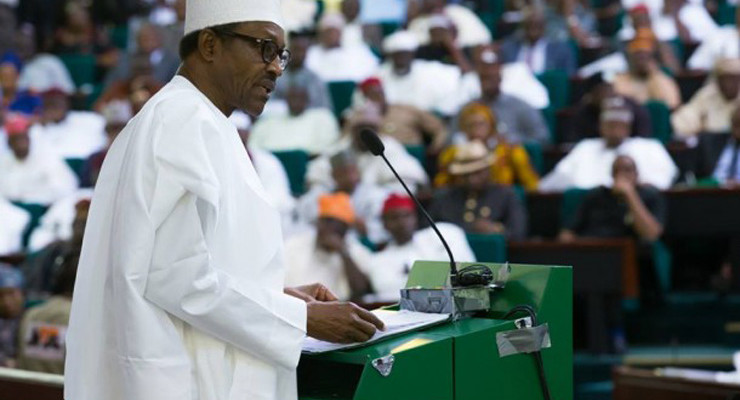To many long-suffering Nigerians, the word ‘corruption’ rightly evokes
images of sleaze and generally, misuse and abuse of power or public
office, in places high and low, for private gain.
Since the government of President Muhammadu Buhari took office in May
2015, these images have been reinforced by the almost daily reports of
looting of the public treasury to the tunes of billions of Naira and
US dollars.
At the launch of the National Sensitization Campaign against
Corruption on 18 January 2016, Information and Culture Minister,
Alhaji Lai Mohammed, stunned Nigerians and the world when he said that
in just seven years (2006 – 2013), just 55 Nigerians were alleged to
have stolen 1.34 trillion Naira.
Consider this: in US dollar terms, the 1.34 trillion Naira translates
to $6.8 billion — more than the combined average yearly revenues of
four sovereign African States: Eritrea ($1.145 billion), Niger ($2.415
billion), Benin Republic ($1.964 billion) and Togo (1.115 billion).
Not unexpectedly, Lai’s disclosure made the front page in more than a
dozen Nigerian newspapers, played widely in the social and
international media, and drew the attention of some of the world’s
most powerful countries and financial institutions.
Cost of corruption: According to the United Nations, corruption does
not just steal money where it is needed most; it stifles economic
growth, weakens democracy and the rule of law, and undermines good
governance and human rights by weakening State institutions that are
the basis of equitable societies.
The United Nations Development Programme (UNDP) classifies corruption
into two types: spontaneous and institutionalized (or systemic)
corruption. Spontaneous corruption is usually found in societies
observing strong ethics and morals in public service.
Institutionalized corruption, on the other hand, is found in societies
such as ours, where corrupt behaviors are perennially extensive or
pervasive. In these societies, corruption has virtually become a way
of life.
Corruption in Nigeria’s public and private sectors is far too familiar
to Nigerians and so well documented that a detailed presentation may
not be necessary here. However, a brief mention of the practice will
not be out of place.
Various forms of corruption practiced in Nigeria include
over-invoicing, bribery, outright embezzlement of public funds,
nepotism, extortion, kickbacks, influence peddling, falsification of
records, the giving of ‘grease money’ or egunje (for smooth delivery
of services).Infrastructure projects have been known to be biased
against the poor, since public officials design public projects that
will maximize bribery receipts and minimize the chance of detection.
This has a pervasive and troubling impact on the poor, since it
distorts public choices in favour of the wealthy and powerful, and
reduces the state’s capacity to provide social safety nets. High
levels of corruption reduce economic growth. It can distort the
allocation of resources and the performance of government in many
ways.
As events in contemporary Nigeria clearly show, corruption can slow
down the pace of development and lead to the aggravation of security
challenges when funds meant to secure and protect citizens are
diverted, misapplied or misappropriated by corrupt public officials.
For example, the reported diversion of funds meant to prosecute the
fight against insurgency in north-eastern Nigeria has led to the death
of tens of thousands of civilians and security operatives, and the
displacement of more than two million Nigerians in the area.
Examples of corruption in education abound. Academic fraud which is
rife in secondary and tertiary institutions is regarded as a serious
threat to the integrity and reliability of certification in our higher
intuitions of learning. Procurement wastages in the education sector,
including “ghost” teachers and even “ghost schools” as well as false
maintenance costs, have been recorded in several states of the
federation. But financial costs are not the only concern here.
“Danger lurks ahead if young people, our most valuable assets, come to
believe that school or university admission or grades can be bought or
‘negotiated’,” says Sylvester James, a Nigerian professor of education
at Ohio University in the United States.
Corruption is also bad for health. It results in the loss of enormous
amounts of limited public health resources. Recent estimates from the
World Health Organization (WHO) show that as much as 25 per cent of
medicines which are procured in African countries can be lost to
fraud, bribery and other corrupt practices. Statistics from WHO also
show that countries with a higher incidence of corruption have higher
child mortality rates.
In his speech at the launch of the National Sensitization Campaign
Against Corruption, the Information Minister gave an insightful hint
of the negative impact of corruption in the land. Using World Bank
rates and costs, he said, one third of the funds stolen by the 55
Nigerians earlier referred to could have provided 635.18 kilometres of
road; built 36 ultra modern hospitals, that is one hospital per state;
built 183 schools; educated 3,974 children from primary to tertiary
level at 25.24 million Naira per child; and built 20,062 units of
two-bedroom houses.
Corruption also undermines democratic institutions and attacks the
very foundation of these institutions by distorting the electoral
process and perverting the rule of law. The situation is not helped in
a bureaucratic culture like ours, where civil servants see themselves
as dispensers of favour and treat people as recipients of patronage.
Breaking the corruption chain:
The APC government has started on the right footing and must intensify
its ongoing efforts to break the corruption chain. Past experience
shows that the most vulnerable areas of government activities are:
public procurement, land allocation, revenue collection, government
appointments, elections and local government business.
Opportunities for corruption must continue to be reduced across the
board through imaginative and innovative policy reforms. Reform of
campaign finance must also be undertaken as the dynamics of electoral
politics, particularly the financial requirements to obtain and retain
office, create opportunities for corruption. Meritocracy in the civil
service should be improved to reinforce merit and provide adequate
financial compensation for performance.
Alhaji Mohammed believes that preventing and combating corruption
requires a comprehensive approach in which governments, the private
sector, the media, civil society organizations and the general public
work together to curb the menace.
The media are particularly called upon to use their privileged
position to play a special role. Using the often unique position that
they occupy in society, the media can provide checks and balances;
report incidences of corruption and raise public awareness about
corruption, its causes, consequences and possible remedies. The media
can also offer an essential service in informing the public about the
positive progress being made by government in the anti-corruption war
and give unambiguous support to those who take principled stands in
the fight against sleaze.
President Buhari should also take advantage of the groundswell of
goodwill he is enjoying around the globe by leveraging on the United
Nations Convention against Corruption, the first legally binding
international anti-corruption instrument. In effect since December
2005, the Convention covers four main areas: prevention;
criminalization and law enforcement measures; international
cooperation; and asset recovery.
A strong judiciary is a key component of any anti-corruption effort.
The government will have to address areas such as the perception and
reality of judicial corruption; case overload and delays; poor working
conditions; alternative dispute-resolution mechanisms and judicial
education. The President’s comment during a town hall meeting he had
with Nigerians living in Ethiopia on 23 January captures the uphill
task he will face in reforming the judiciary. Buhari said : “In my
first attempt (to be President) in 2003, I ended up in the Supreme
Court, and for 13 months I was in court. The second attempt in 2007,
I was in court for close to 20 months, and in 2011, my third attempt,
I was in court for nine months. I attempted three times and on the
fourth attempt through God and the use of technology, it was possible
to elect an APC candidate as President.”
But all said and done, involvement of the people in curbing corruption
is key. As citizens become increasingly aware about corruption, they
also become increasingly weary of corrupt leaders and demand more
accountability. To paraphrase Alhaji Mohammed, people will gladly take
ownership of corruption if they know that it is linked to
unemployment, bad roads and road traffic crashes, prolonged
insecurity, reduced life expectancy, the creation of widows and
orphans, and weak electoral systems which throw up corrupt leaders and
bad policies. “They will not hesitate to confront the looters’’, he
says pointedly.
Today, ordinary citizens, including many young people, are
increasingly showing they are committed to fighting corruption. As
part of this process, citizen can – and should – inform themselves
about what their Governments are doing to tackle corruption and hold
elected officials responsible for their actions. Actions are also key
–reporting incidences of corruption to the authorities, teaching
children that corruption is unacceptable, and refusing to pay or
accept bribes.
Alhaji Mohammed puts the centrality of citizens in the anti-corruption
war more succinctly and elegantly: This is not Buhari’s war. This is
not APC’s war. This is Nigeria’s war.”




